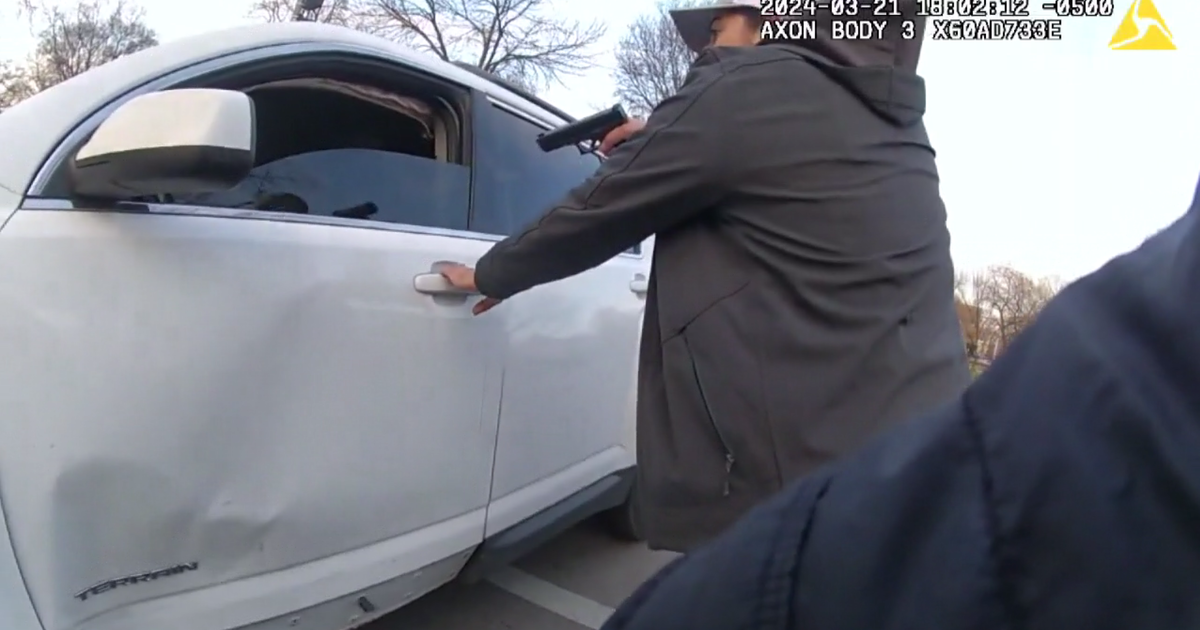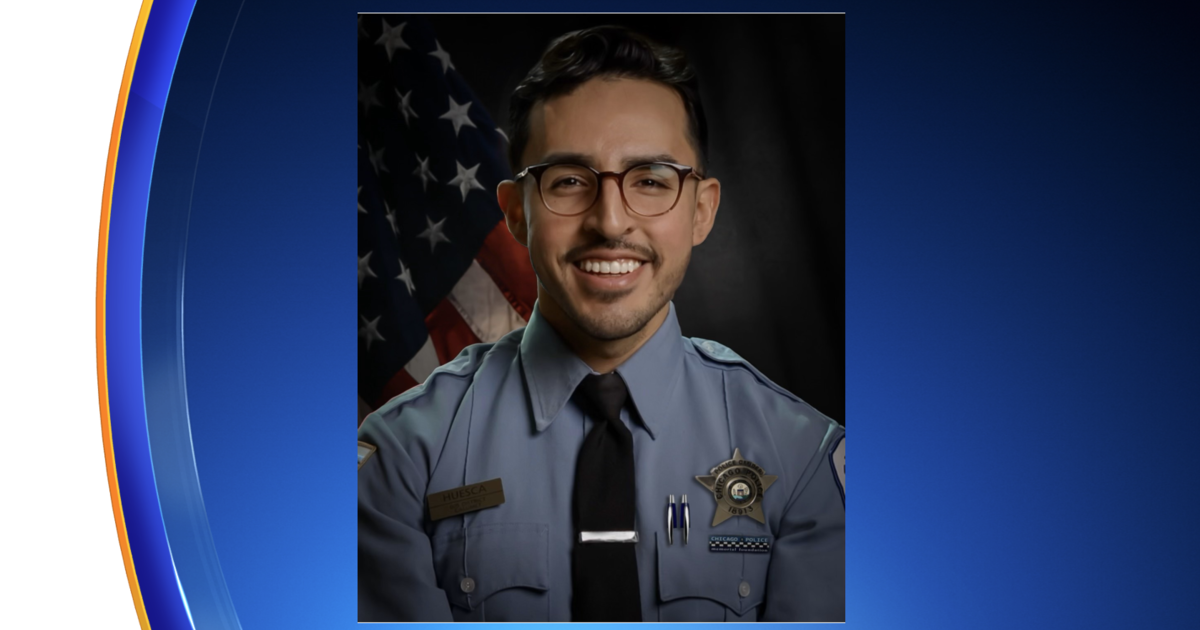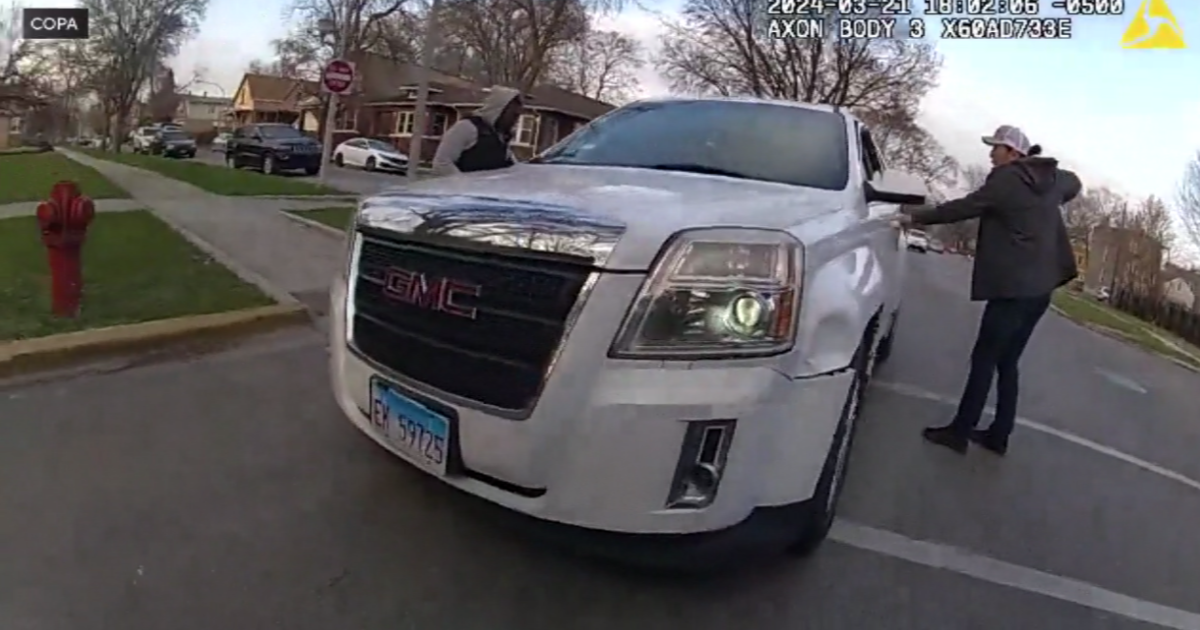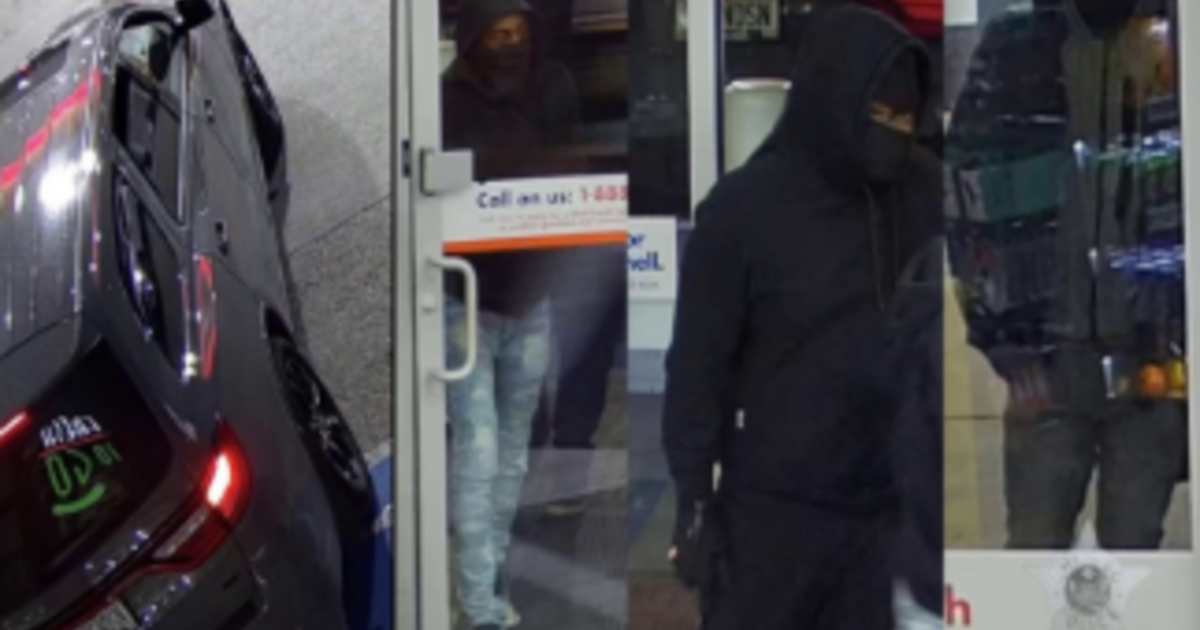Police, Mayor Lightfoot React To Report On CPD Lieutenants Failing To Review Body Cam Recordings
CHICAGO (CBS) -- Police and Mayor Lori Lightfoot reacted Tuesday evening to the story CBS 2 first broke that is raising questions about Chicago's police body camera program.
The reaction comes following a new report from the Chicago Office of the Inspector General, citing a story by CBS 2 Investigators.
[scribd id=420220157 key=key-ieIOhpkENZswW6P4rw1C mode=scroll]
The body cameras worn by Chicago Police officers are paid for by taxpayers. The OIG report indicated that video captured on the cameras is not being reviewed the right way.
CBS2's Megan Hickey got an exclusive look at the report before it was released, and she spent Tuesday tracking down answers from the city.
The body cam video is crucial footage that can often act as a beacon of truth in controversial interactions between police officers and their community.
According to the city's 2019 budget, Chicago received more than $2.2 million in taxpayer-funded grants to ensure a successful program.
But CBS 2 Investigators have exposed case after case of officers failing to turn on, or even wear, their station-issued cameras.
The city OIG now says the reason in part is because the system of checks and balances for this expensive programs is broken.
"It's a problem," said Inspector General Joe Ferguson.
The report found that some commanders were failing to review the body cam video appropriately, and that so-called "random" reviews were far from it.
Some supervisors have been picking shorter videos for the sake of time, the report said.
On Tuesday, Mayor Lightfoot acknowledged the problem when CBS 2 asked her about it.
"The lieutenants who had the responsibility to make those checks didn't do it," Mayor Lightfoot said.
She also said the problem is being fixed.
"We'll be handling that internally to make sure that that it a) gets done, and that there's a level of accountability or those who fail to fulfill their obligations to make sure that they were going those inspections," Mayor Lightfoot said.
Police Supt. Eddie Johnson said there will be consequences for non-compliance with the program.
"For those individuals who weren't in compliance, then there will be some accountability with them," Johnson said.
But what about that accountability? How about suspensions for supervisors who fail to comply?
"Well, we'll see. We'll see," Johnson said. "We'll see going forward."
Police did not comment further on possible discipline. But they would say the body-worn camera audits have been added to the department's management system and commanders will be checked for compliance every two weeks.
The department has also moved inspectors into the unit to perform audits in the field.
Ald. Chris Taliaferro (29th), who chairs the City Council Public Safety Committee, said while he is "encouraged" that police leadership acknowledged the failures uncovered by the OIG, he also urged Johnson to provide a timeline on when measures will be put in place.
"Although I am encouraged that the leadership within the Chicago Police Department has acknowledged its failure to comply with its Special Order S03-14, I am also frustrated that within the last several weeks, we have had to address issues that serve to continue to erode public trust in our police department. I sincerely believe that Superintendent Eddie Johnson will continue to make every effort to restore the community's faith in our Department. In doing so, it is quite important that the recommendations of Deputy Inspector General Joseph Lipan be fully implemented without hesitation. Across this country, no police department is perfectly run, including the Chicago Police Department. However, when we recognize our shortcomings and failures, it should be our strength in building community based policing to correct them. As such, and as I monitor the Department's progress with implementation of the OIG's recommendations, I would urge Sup. Eddie Johnson, to provide a timeline on when these measures will be put in place. "
Meanwhile, the president of Chicago's Fraternal Order of Police tells CBS 2 that potential discipline in regards to these body cameras is the subject of contract negotiations that are still pending.
He described the body-worn camera program as "an unfair labor practice."



